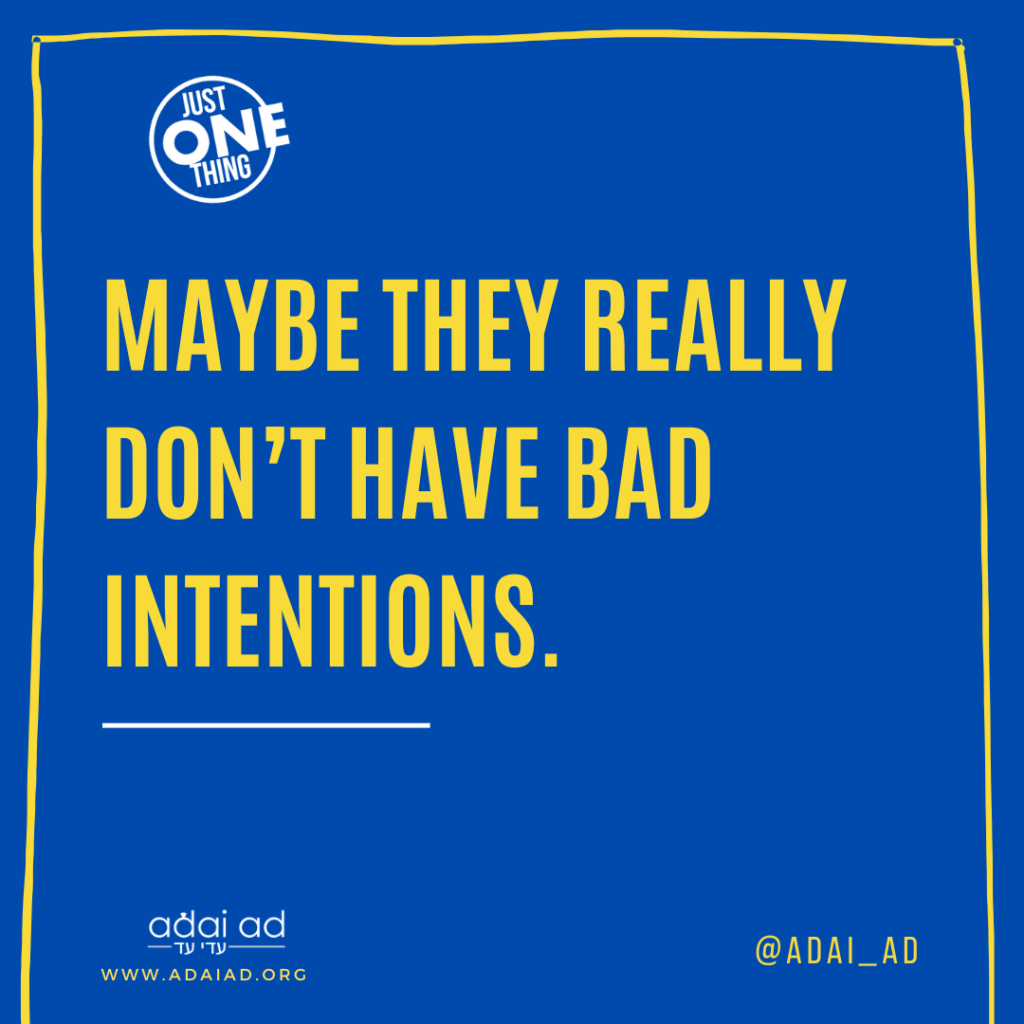Too often, we leap to conclusions about someone’s intentions, and our assumptions aren’t always accurate. We tend to interpret their intentions based on how their actions impacted us. If we feel hurt, we assume they intended to hurt us. If we’re embarrassed, we believe they intended to embarrass us.
This inclination to assume the worst is quite common. However, it’s essential to recognize that there might be perfectly reasonable explanations for their behavior that we haven’t considered. (Of course, it’s worth acknowledging that there are instances of genuine malicious intent, but these are far less frequent than we might think.)
When we react based on these assumptions about intent, we can easily go from perceiving “bad intentions” to concluding that someone has a “bad character.” Once we make this judgment about their character, we tend to view everything they do through the lens of that perceived negativity. In a downward spiral.
If you catch yourself harboring negative thoughts about someone, it’s beneficial to question the basis of your perception. What is influencing your viewpoint? Are you feeling powerless, fearing manipulation, or becoming frustrated? If so, recognize that your judgment likely hinges on how their actions impacted you, which alone is insufficient evidence to firmly establish their intent or character.
📌 Try to separate their behavior from its impact. Ask yourself, “What did the other person actually say or do? And what was the impact on me?” Then, consider, “Based on this impact, what assumption am I making?” This process can help you gain a more balanced perspective.


